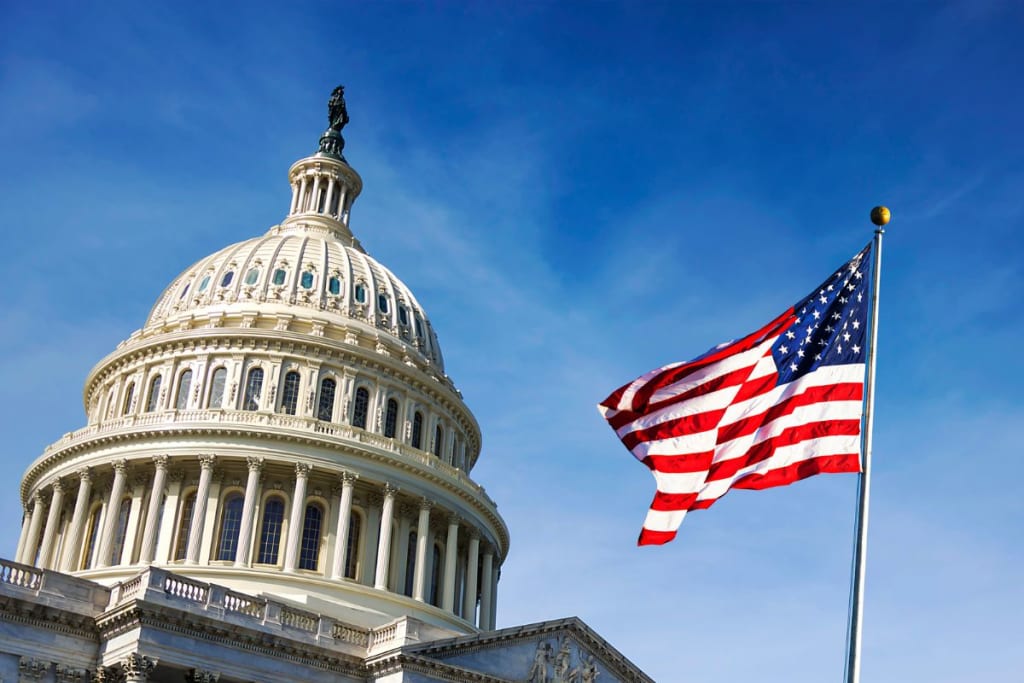
1. America in 2050
Americans are narrowly hopeful about the future of the United States over the next 30 years but more pessimistic when the focus turns to specific issues, including this country’s place in the world, the cost of health care and the strength of the U.S. economy.
Overall, six-in-ten adults predict that that the U.S. will be less important in the world in 2050. While most key demographic groups share this view, it is more widely held by whites and those with more education. About two-thirds of whites (65%) forecast a diminished role in the world for the U.S. in 30 years, a view shared by 48% of blacks and Hispanics. Roughly seven-in-ten adults with a bachelor’s or higher degree (69%) see a lesser role internationally for America. By contrast, six-in-ten of those with some college education (but no bachelor’s degree) and 52% of those with less education are as pessimistic about the country’s future world stature.
The current partisan political debate over the country’s proper role in the world is mirrored in these results. About two-thirds of Democrats and independents who lean Democratic (65%), but closer to half of Republicans and Republican leaners (52%), think America will be a diminished force in the world in 2050. These differences are even greater among partisans at opposite ends of the ideological scale: 72% of self-described liberal Democrats but 49% of conservative Republicans say the U.S. will be less important internationally in 30 years.
As they see the importance of the U.S. in the world receding, many Americans expect the influence of China will grow. About half of all adults (53%) expect that China definitely or probably will overtake the United States as the world’s main superpower in the next 30 years. As with U.S. standing in the world, large party differences emerge on this question. About six-in-ten Democrats (59%) but just under half of Republicans (46%) predict that China will supplant the U.S. as the world’s main superpower.
The public predicts another 9/11 – or worse – by 2050
For an overwhelming majority of Americans, the 9/11 terrorist attacks stand as the most important historic event in their lifetimes. As Americans look ahead to 2050, six-in-ten say that a terrorist attack on the U.S. as bad or worse than 9/11 will definitely (12%) or probably (48%) happen.
This troublesome prediction is widely expressed by most major demographic groups. Roughly equal proportions of whites (61%), blacks (56%) and Hispanics (59%) say such a terrorist attack is likely sometime in the next 30 years, and so do 57% of men and 62% of women. While Republicans are more likely than Democrats to say such an attack will definitely or probably happen, majorities in each group express this view (63% of Republicans and 57% of Democrats).
At the same time, some demographic differences do emerge. Those with some college or less education are more likely than college graduates to expect another 9/11 (64% vs. 49%) by 2050. And Americans who are 50 or older are more likely than younger adults to say this will happen.
Narrow majority sees a weaker economy in 2050
Just over half of the public (54%) predicts that the U.S. economy in 30 years will be weaker than it is today, while 38% say it will be stronger. Similarly, larger shares of most key demographic groups forecast a less robust rather than a more vigorous economy in 2050.
Whites are somewhat more pessimistic than blacks or Hispanics about the future financial health of the country: 57% of whites compared with 48% of blacks and 43% of Hispanics predict a weaker economy in 30 years.
Roughly half or more of every income group predict a weaker economy in the next 30 years. However, Americans in higher-earning families are somewhat more likely than lower-earners to say the economy will be better in 2050 than it is today. About four-in-ten adults (43%) with family incomes of $75,000 or higher say the economy will be stronger, a view shared by 35% of those earning less.
Public predicts growing income inequality and an expanding lower class
About three-quarters of all Americans (73%) expect the gap between the rich and the poor to grow over the next 30 years, a view shared by large majorities across major demographic and political groups.
Differences between some groups do emerge, but only the size of the majorities differ and not the underlying belief that income inequality will grow. About three-quarters of whites (77%) but smaller majorities of blacks (62%) and Hispanics (64%) expect income inequality to increase by 2050. Similarly, about three-quarters of those who attended or graduated from college (77%) say the gap between the rich and the poor will increase, a view shared by two-thirds of those with a high school diploma or less education. Roughly equal shares of Republicans and Democrats expect income inequality to grow (71% and 75%, respectively).





Comments (1)
hope U all will gave me a positive response